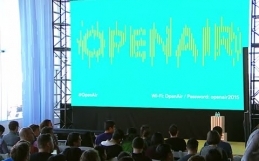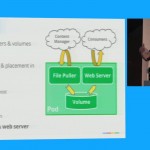How do you explain the popularity of Docker? By comparing it to Fernando Alonso of course. Mandy Waite has become a popular torch bearer on the cloud circuit as Developer Advocate at Google and recently featured at Codemotion in Rome talking about Containers for Developers from Docker to Google’s own Kubernetes.
Waite weaves her work at Google with an industrious agenda of talks and workshops across the globe at events with different theme offerings, having also recently presented at the Finnish Chapter of the International Games Developers Association and features today at APIDays Berlin and APIStrat Europe with ‘From Adwords to Firebase: The road to API Nirvana’.
From the developers perspective, containers are lightweight environments which are easy to build and manage and give a static application environment which means reliable deployments each time. At Google, everything runs on containers so clustering is crucial and here, Waite gives an insight into how their cluster management stack works.
Whilst Docker has done a great job in creating tools to manage containers and bringing them to the masses, Google has worked on containers at scale as a part of it’s cloud efforts for years. Waite explains how Kubernetes works, a project which Google has open sourced inspired by their internal experiences of working with containers.
Kubernetes allows developers to schedule clusters of containers without worrying about how the containers will be distributed across virtual machines or cloud providers. If necessary it can also provision new VMs, manage and monitor them. In the same way that virtual infrastructure will autoscale based on the requirements of an application (PaaS) Kubernetes does the same with containers meaning developers do not have to worry about various command line tools for orchestrating multiple containers.
The full roadmap to Kubernetes is outlined in a blog post which explains the Kubernetes features that were used in Borg, Google’s internal container oriented cluster management system which uses it’s own equivalents of pods, services, labels and giving a different IP address to each pod.
Full talk plus Kubernetes demo –






